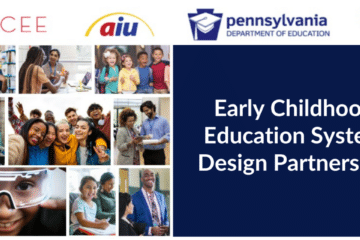Last month, 51 Salzburg Global Fellows from 20 countries came together to consider the kind of societies we are aiming for and how transformed education systems could help us to get there. The Fellows of the program, including NCEE CEO and Board Co-Chair Anthony Mackay, jointly drafted and produced a collective statement, the Salzburg Statement for Education Transformation, which was released at the Education World Forum 2022 in London. The statement calls for a “global moment for education transformation” to ensure that all learners acquire the knowledge and skills needed to thrive and become active citizens in today’s complex world.
The latest report from the National Center on Teacher Quality (NCTQ), Teacher Prep Review: Preparation in Elementary Mathematics, examines over 1,100 teacher preparation programs across the country to determine how much time programs dedicate to mathematics as well as how that time is spent. Amidst concerns that students have lost more learning in math than reading during the pandemic, the report offers some good news: undergraduate programs now require an average of 19 percent more time for elementary math coursework than they did when NCTQ evaluated them in 2014. However, even with the additional time, NCTQ warned that many programs are not covering the full range of math content knowledge needed. As covered in EdWeek’s Are Aspiring Elementary Teachers Learning Enough Math?, there is urgency to the situation: just four in ten 4th graders demonstrate math proficiency on the NAEP tests – and the pandemic has likely put more students even further behind. NCTQ’s report provides recommendations for how teacher preparation programs and state agencies might accelerate improvement in this critical area.
The 74 released exclusive data providing new evidence of a “bulge” in 9th grade enrollment in one-third of the states due to students being required to repeat the grade after not earning enough credits during the pandemic, according to an analysis by bubio. Exclusive Data: Freshmen, Held Back During Pandemic, Fuel ‘Bulge’ in 9th Grade Enrollment notes that while an enrollment surge was predicted in the early grades as many families chose to delay pre-K and K during school closures, this shift in high school enrolment numbers was not necessarily predicted. Fifteen states and Washington, D.C. saw growth in ninth grade of at least 5 percent compared to 2020-21, and in a few states, including New Mexico and North Carolina, the increase in freshmen far outpaced that of kindergartners.
NCEE CEO and Board Co-Chair Anthony Mackay had a conversation with Charles Fadel, founder and chairman of the Center for Curriculum Redesign (CCR) and visiting scholar at Harvard Graduate School of Education, about what it takes to ensure that schools and teachers have the tools – including pedagogy, professional development, and assessments – needed to effectively teach critical 21st Century skills and of social-emotional learning skills. CCR makes recommendations about which key competencies align best with which disciplines (for example, math classes may focus on developing a growth mindset in learners, while science classes may work on building curiosity) and ways to assess student competencies.
In a series of recently released reports from Georgetown University’s Center on Education and Workforce, new data indicates that young adults need more time than ever before to assemble the necessary education, work, and experience to secure a “good” job and therefore young adults today accumulate less wealth than the previous generation. There are a number of barriers: the rising cost of post-secondary education; limited access to high-quality work-based learning; and the absence of comprehensive counseling and career navigation services. The authors argue that these three barriers only serve to heighten disparities in educational attainment and financial security by race, class, and gender.
The Centre for Strategic Education in Australia has released Education for Human Flourishing, a new paper in its leading education series. Author Michael Stevenson, senior advisor for the Organisation for Economic Co-Operation and Development (OECD), considers how education systems need to change to ensure that individuals and societies are able to thrive in the coming age of machines. What makes human intelligence distinct? How can we combine scientific and moral reasoning to give equal weight to the health of the human race and the planet? The paper suggests three competencies will be particularly important for students to master: 1) adaptive problem solving; 2) ethical decision making; and 3) aesthetic perception.
In Education Next, Chester E. Finn, Jr. provides a detailed history on how the achievement levels for the National Assessment of Educational Progress (NAEP) tests in mathematics and English came to be. His piece, Student Achievement Levels in the Nation’s Report Card: A Brief HIstory of “Basic,” “Proficient,” and “Advanced,” discusses how in the early 1990s the National Assessment Governing Board (NAGB), chaired by Finn at the time, came to establish and define four achievement levels: below basic, basic, proficient, and advanced. The process was not easy and not without controversy. While he supports NAGB’s current effort, being led by Pearson, to update and improve the achievement levels, their descriptors, and how the assessments align with them, he cautions replacing them entirely as they represent “the closest thing America has ever had to nationwide academic standards.”





